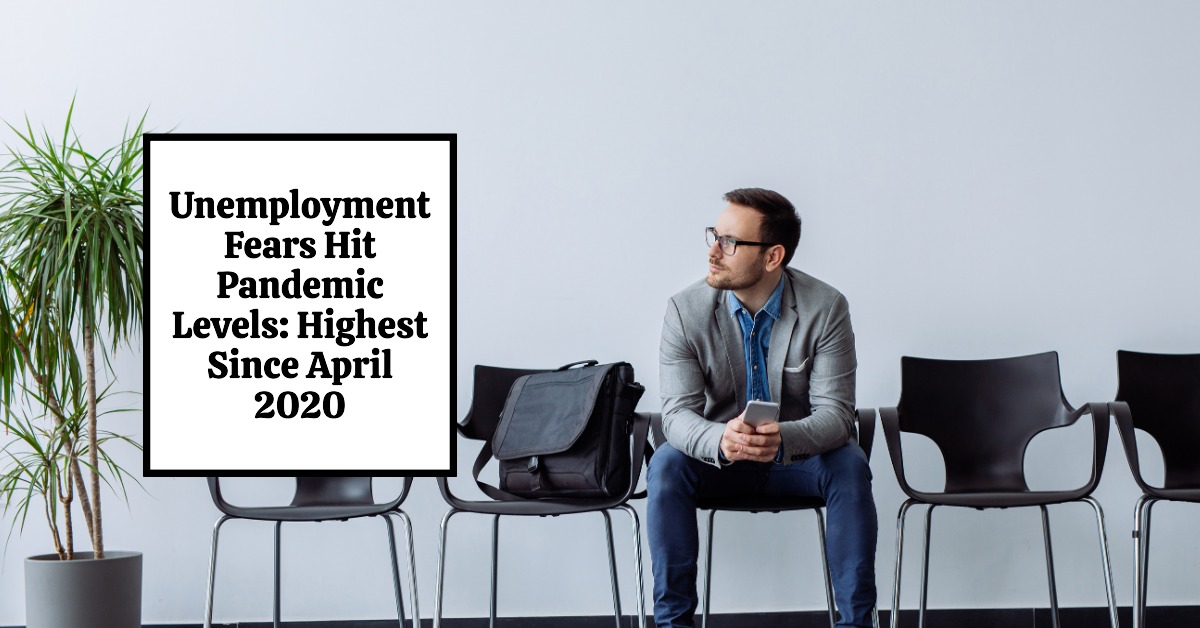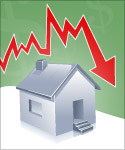Have you noticed a nagging worry in the back of your mind lately? It's not just you. According to a recent survey, unemployment fears are on the rise, hitting levels we haven't seen since the early days of the COVID-19 pandemic. Despite a relatively strong job market, a significant number of Americans are increasingly concerned about losing their jobs or seeing the unemployment rate rise. I believe that these anxieties are largely driven by uncertainty surrounding economic policies and global trade, creating a complex picture where perception doesn't quite align with reality.
Unemployment Fears Hit Pandemic Levels: Highest Since April 2020
Why Are People So Worried About Jobs Right Now?
A survey conducted by the New York Fed reveals that a large number of Americans are worried about the job market. The March 2025 Survey of Consumer Expectations, which came out on April 14, 2025, shows some interesting points:
- 44% of respondents think the unemployment rate will be higher in a year. This is a pretty big jump, up 4.6 percentage points from the previous month. It's also the highest this number has been since April 2020, when the pandemic was just starting to mess things up.
- 15.7% of people feel like they could lose their job in the next year. That's a 12-month high, and it's especially worrying for folks who don't make a lot of money.
It's like the dark cloud of economic uncertainty that we thought had mostly blown over is now looming again. So what exactly is causing this spike in worry?
Policy Uncertainty and Trade Wars: The Culprits?
Experts are pointing fingers at a couple of key issues. First, the unpredictability of federal policies, especially when it comes to trade, is creating a lot of nervousness. Imagine trying to plan a big project when the rules keep changing. That's what businesses and consumers are facing right now.
Second, the ongoing global trade war isn't helping either. With countries slapping tariffs (taxes on imports) on each other's goods, it's becoming more expensive for companies to do business. Higher costs can lead to layoffs, or at least a slowdown in hiring.
To break it down simply:
- Policy Uncertainty: Think of tariffs as a surprise tax. Businesses don't like surprises, and they might be less likely to hire if they don't know what's coming next.
- Global Trade War: This makes it harder and more expensive to get the stuff companies need to make and sell products. If it costs more to do business, companies might cut back on jobs.
The Disconnect: Strong Economy, Anxious People
Here's where things get a little weird. Even with all this worry, the U.S. economy is actually doing pretty well. The unemployment rate in March 2025 was 4.2%, which is close to the lowest it's been in a long time. And the economy added 228,000 jobs that month, which was more than experts had predicted.
So why are people so worried when the numbers look good? This disconnect suggests that there's more to the story than just the raw data. I believe it comes down to a few factors:
- News and Media: The media tends to focus on the negative. Constant reports of trade wars and policy uncertainty can make people feel anxious, even if their own jobs are secure.
- Personal Experience: Even if the national unemployment rate is low, some people might know friends or family members who have lost their jobs. This can make them feel more vulnerable.
- Inflation Concerns: High inflation makes people feel poorer, since their paychecks can't buy as much. People might worry that if things get much more expensive, it could lead to layoffs.
Consumer Sentiment and Self-Fulfilling Prophecies
One of the tricky things about the economy is that people's feelings can actually affect how it performs. If people are worried about losing their jobs, they might start spending less money. This can lead to businesses making less money, which could then lead to layoffs.
It's like a self-fulfilling prophecy: if people expect the economy to do badly, their actions can actually make that happen.
The Impact on You
This surge in unemployment fears can have a real impact on your life, even if you're not currently worried about losing your job.
- Spending Habits: You might be more cautious about big purchases, like a new car or a vacation.
- Savings: You might decide to save more money, just in case you need it.
- Job Security: You might start looking for a new job, even if you like your current one, just to have a backup plan.
I believe it is important to stay informed, but also try to keep things in perspective. A little bit of planning can help manage your anxieties.
The Importance of Paying Attention
This situation highlights the importance of paying attention to both the hard economic data and the way people are feeling. Policymakers need to be aware of how their decisions are affecting consumer sentiment, and they need to communicate clearly about their plans.
Businesses also need to be mindful of the anxiety that people are feeling. Companies that treat their employees well and invest in their communities are more likely to earn the trust and loyalty of both their workers and their customers.
Is a Recession on the Horizon?
Here's the million-dollar question. Could these unemployment fears be a sign that a recession is coming? Some experts think so. A recent survey by Bankrate suggests that the odds of a recession have risen to 36%. That's not a guarantee, but it's definitely something to keep an eye on.
The survey pointed to concerns about:
- Weaker economic growth
- Higher inflation due to tariffs
My Take: What Does This All Mean?
Honestly, I think it's a mixed bag. The economy is definitely facing some challenges, and the uncertainty surrounding trade and policy is creating a lot of anxiety.
However, I also believe that the U.S. economy is more resilient than many people think. The labor market is still strong, and consumers have a lot of pent-up demand. If policymakers can avoid making any big mistakes, the economy could continue to grow.
Here's my advice:
- Stay informed: Keep up with the latest economic news, but don't get too caught up in the doom and gloom.
- Be prepared: Make sure you have an emergency fund and a plan in case you lose your job.
- Focus on what you can control: Work hard, save money, and stay positive.
Conclusion:
The increase in unemployment fears is a reminder that the economy is complex and unpredictable. While the underlying economic data paints a fairly positive picture, consumer sentiment is being negatively affected by trade war, policy uncertainty, and the psychological impact of these developments. The resilience of the economy will depend on consumer confidence and how policymakers respond to these challenges.
Work With Norada – Create Financial Security Amid Rising Unemployment Fears
With unemployment fears hitting pandemic levels, many are looking for reliable income sources that don’t depend on the job market. That’s where real estate investing comes in.
Norada offers turnkey rental properties that help you build passive income and long-term wealth—even in times of economic uncertainty.
Speak with our expert investment counselors (No Obligation):
(800) 611-3060
Read More:
- Stock Market Meltdown: Dow, S&P 500, Nasdaq Hit Hard by Tariff Fears
- S&P 500 Plunges 6% in Biggest Fall Since 2020 Amid Trade War Fears
- Stock Market Predictions 2025: Will the Bull Run Continue?
- S&P 500 Plunges by 2% as Inflation Panic Grips Markets
- Stock Market Crash: Nasdaq 100 Tanks 3.5% Amid AI Concerns
- Stock Market Crash Prediction With Huge Discounts on Bitcoin, Gold, Houses
- S&P 500 Forecast for the Next Year: What to Expect in 2025?
- Stock Market Predictions for the Next 5 Years
- Billionaire Warns of Stock Market Crash If Harris Wins Elections
- Stock Market is Predicted to Surge Regardless of the Election Outcome
- Echoes of 1987: Is Today’s Stock Market Crash Leading to a Recession?
- Is the Bull Market Over? What History Says About the Stock Market Crash
- Wall Street Bear Predicts a Historic Stock Market Crash Like 1929
- Economist Predicts Stock Market Crash Worse Than 2008 Crisis
- Stock Market Forecast Next 6 Months
- Next Stock Market Crash Prediction: Is a Crash Coming Soon?
- Stock Market Crash: 30% Correction Predicted by Top Forecaster




